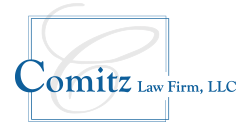Every year defective products cause over 29 million injuries and 21,400 deaths.
Product Liability
Lawsuits for injuries caused by a defective product will typically be governed by “product liability”. This fault concept refers to the liability of any or all parties along the chain of manufacture of any product for damage caused by that product.
In Pennsylvania, manufacturers or sellers of defective products are held strictly liable for injuries to consumers. The injured consumer does not need to prove carelessness or negligence.
By law, a product is said to meet the ordinary expectations of the consumer. When a product has an unexpected defect, it cannot be said to meet those expectations. For product liability to arise, the product must have been sold in the marketplace at some point. The injured person does not have to be the purchaser of the product in order to recover. Any person who foreseeably could have been injured by a defective product can recover for his or her injuries, as long as the product was sold to someone. For strict liability to apply, the sale must be made in the regular course of the supplier’s business.
Examples of Defective Products
Defects can occur in a wide range of products. The following is a non-exhaustive list of some potentially defective products.
Pharmaceutical products
Drugs are often rushed to market before they are fully tested for dangerous side effects. Harm caused by defective pharmaceuticals can be life-altering or even life-threatening.
Medical devices
Like defective pharmaceuticals, defective medical devices can have a devastating impact on a patient’s quality of life. Some medical devices that give rise to product liability lawsuits include hip replacements, transvaginal mesh, pacemakers, and other implants.
Automobile components
Motor vehicle crashes often result from defective parts. Most of these defects have their genesis in the design or manufacturing process. Components of cars that are especially prone to defects include brakes, tires, airbags, seat belts, brakes, and tires.
Pesticides
A popular weed killer has been at the center of countless lawsuits. The cases claim that the pesticide causes non-Hodgkin’s lymphoma cancer due to its active ingredient, glyphosate.
Food
Food manufacturers are typically held strictly liable for the personal injury caused by their products. In a strict product liability action, a plaintiff can recover damages without showing that the manufacturer or seller of a product was negligent.
Baby powder
The use of talcum powder for feminine hygiene has been found to cause ovarian cancer. Evidence presented in product liability lawsuits indicated that one manufacturer intentionally concealed talcum powder cancer risk information from consumers for over forty years.
Children’s products
Products for children and babies can contain lead paint and small parts. So even minor defects can result in major injuries. Potentially dangerous items include clothing, toys, baby food, as well as equipment such as cribs and strollers.
Types of product defects
A plaintiff in a product liability case must prove that the product that caused injury was defective and that the defect made the product unreasonably dangerous. There are three types of defects that might cause injury and give rise to product liability.
Design defects
With these defects, every product of a particular type will be unreasonably dangerous to use, or otherwise defective. In design defect cases, the plaintiff may have to show that the risk could have been reduced or avoided by the adoption of a reasonable alternative design.
Manufacturing defects
These types of defects result from a flaw in construction or production. They typically occur in only one or a few products of a particular type.
Marketing defects
These defects involve inadequate instructions in how to use the product or a failure to warn of the product’s latent dangers. Typically, a “failure to warn” claim centers on a product that is dangerous in a non-obvious way or that requires a consumer to take certain safety measures when using it. Manufacturers and suppliers of unavoidably unsafe products must give proper warnings of the dangers and risks of their products, enabling consumers to make informed decisions.
Prospective defendants
Liability for a product defect could rest with any party in the product’s chain of distribution, which includes:
- The product manufacturer;
- A manufacturer of component parts;
- A party that assembles or installs the product;
- The wholesaler; and
- The retail store that sold the product to the consumer.
Depending on the circumstances, defendants may also include consultants, designers, contractors, quality-control engineers, pharmacies, health care professionals – basically anyone else with some sort of connection to the problem that caused the injury or illness.
Product liability actions can be quite complex, making the assistance of an experienced lawyer indispensable. If you or a loved one have been seriously injured by a defective product, call the Comitz Law Firm, LLC at 570-829-1111 or email info@comitzlaw.com to speak with a knowledgeable personal injury attorney.


